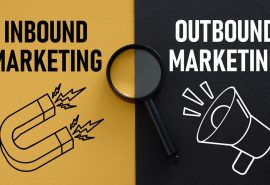The marketing value of sharing your ethical credentials

Engineering and technology companies, as well as professional services and any organisation marketing themselves to Decision Making Units (DMUs) rather than private consumers, all have the same issue: how do you engage the whole DMU in your marketing communications?
One part of the answer is to ensure that you are admired as a company, and that you have a properly engaged workforce, who share your ethics and objectives, and are therefore happy to evangelise for you, themselves.
We are proud to work closely with Siemens on the integration of their ethical credentials – such as their mental health policies. Activities like this (we provide their graphical design, print and production services) encourage admiration, employee engagement and loyalty. This results in marketing activities and employee-generated comms (eg social media) which position Siemens as a company you aspire to do business with and/or work for.
Siemens are big, and this not a profit-related area for most SMEs. However, if you are selling to a DMU, this sort of activity can have a profound impact on your marketing, and be the factor that makes the difference between you and a competitor winning the next contract.
I’m indebted to Phil Lattimore who wrote this as part of an article in ‘Exchange’, the publication of CIM (the Chartered Institute of Marketing). The full article is unfortunately no longer available, but you can read a variety of other informative articles on their site.

We look at Siemens and explore the route they have taken towards establishing and broadcasting their ethical credentials.
Siemens was founded in 1847, and over its 170-year history, the German company has grown into a global engineering and technology giant. The conglomerate is currently the largest industrial manufacturing company in Europe, with activities covering many sectors.
Today, Siemens prides itself on a corporate culture that emphasises ethical conduct and compliance, integrity, transparency and trust. It achieves this through both internal and external activities and programmes that engage communities and supply chains in which it operates. Yet, in December 2008, following a global bribery and corruption scandal, Siemens faced a record fine of US$800m from US authorities – and a settlement payment of €395m (£354m) in Germany after a long-running regulatory investigation. This inflicted huge damage on its corporate reputation.
Rebuilding that reputation was the top priority for new Siemens CEO Peter Löscher. He implemented rigorous corporate governance structures, introducing a strict regime of new anti-corruption/compliance rules and processes. The company brought in a leading anti-corruption advisor, hired more than 500 compliance officers and established a new compliance unit.
“It was absolutely rigorous for everybody, to make sure we are always a very compliant company,” says Justin Kelly, director of communications and business development Siemens UK and Ireland. “But it’s about much more than compliance and not breaking the law – it’s about being a responsible business.”
Siemens’ response has been commended by independent anti-corruption and ethics experts, including the OECD and US authorities. The company is now recognised as one of the most transparent companies in the world, with a corporate compliance standard acknowledged as one of the best globally.
Kelly believes the Siemens brand claim – ‘Ingenuity for life’ – underpins its responsible business ethos, and cites three main elements to developing an ethical core: leadership; authenticity and culture. Leadership is important, he says, to demonstrate the business’s willingness to tackle some challenging subjects.
For example, he points to Siemens UK’s focus on mental health issues and the importance of building an open internal culture about this, while also working externally with charity MIND. Promoting diversity and inclusion – for instance, through the establishment of an LGBT network internally and activities externally – is another example of this alignment. “As leaders, we know that we can have a positive impact, but there’s also that ability to try to make a difference externally as well as internally,” Kelly says.
Authenticity is crucial too. “If you’re not authentic as a business and genuinely believe these things, and have an engaged workforce that buys into your ethos, it’s pointless trying to talk about them externally – people will see right through it,” Kelly says. To ‘walk the talk’, it’s essential to share this ethos through the workforce at all levels.
This is reinforced by a strong ownership culture. “The bottom line,” says Kelly, “is to act and behave as this were your own company. Having that really engaged workforce means things we do have real impact.”
In the UK, this responsible ethos is articulated both through internal and external engagement. For example, an innovation network has been established across a number of key UK universities. Siemens UK has also focused heavily on the skills agenda, employing more than 650 apprentices and 100 graduates.
“Sometimes it’s OK to set a target and to say ‘we want to achieve this sometime in the future’, but I think we would rather talk about the proof points of what we’ve done and how we’ve achieved it,” Kelly says. “It’s about doing it rather than talking about it.”
Lessons to take away
Siemens has fought hard to regain its reputation through the establishment of strict anti-corruption and compliance processes. In both cases, marketers have played a key role, not by broadcasting superficial, bolt-on gestures, but by communicating profound organisational evolution, understood by the workforce and backed up by strong corporate values.
Related Posts
-
OK – so we have to have them, otherwise who knows what inf...Jan 31, 2014 / 0 comments
-
Banner blindness… the downward price spiral of click-t...Dec 13, 2013 / 0 comments
-
Learn all about the differences between Inbound vs Outbound ...Jan 04, 2023 / 0 comments
-
By building an effective strategy that considers the needs o...Mar 31, 2023 / 0 comments
Recent Posts
- Marketing is War! Marketers must be prepared for the future, whatever it brings.
- Gain buy-in from the C-suite: how to influence the Boardroom
- Are trade shows worth it? The value of B2B trade events
- Successful business networking with B2B events: How to make them work for you
- Innovative B2B brand building strategies for 2024: Our top tips
Copyright © 2024 Marcom (Marketing Communications) Ltd. All rights reserved.
Cookies & Privacy Policy. This site is protected by reCAPTCHA and the Google Privacy Policy and Terms of Service apply.









Sorry, the comment form is closed at this time.